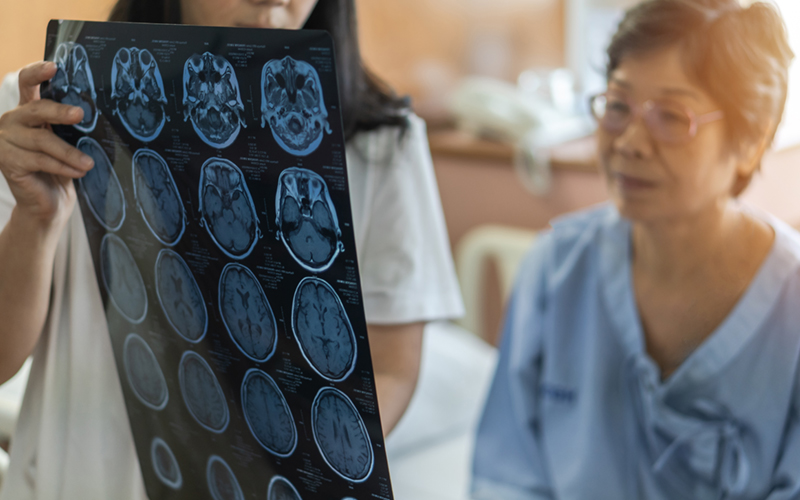Fairbanks Ranch Brain Injury Attorneys
- 550+ Google 5-Star Reviews
- $1 Billion won over 15 years
- Won’t settle for low offers, not afraid to fight for max value

Get a Free Case Evaluation
No fees until we win!
All San Diego Case Types

Personal Injury

Brain Injury

Car Accident

Slip & Fall

Truck Accident

Wrongful Death
Fairbanks Ranch Brain Injury Attorneys
People have always suffered brain injuries, but we are only now starting to understand brain injuries and their treatment. Individuals who have suffered a brain injury in Fairbanks Ranch may feel alone in their struggle, but they are not: In fact, someone in the United States suffers a brain injury every nine seconds. Millions of Americans live day to day with a traumatic brain injury.
Brain injuries can damage a person’s thinking, memory, personality, and behavior. Undoubtedly, more people have suffered a brain injury than are diagnosed. Sports-related injuries have presented a problem for years, but are only now coming to the public’s attention. Brain injuries among members of the military have finally begun to receive media attention they deserve, even as TBI perplexes military doctors and brass.
Clearly, brain injuries are an urgent medical and public health problem. Those with brain injuries may need long-term care and support. If another person’s negligence caused your brain injury, you might be entitled to compensation. To learn more about your legal options, consult the experienced California brain injury lawyers at Gomez Trial Attorneys.

The Financial Costs of Traumatic Brain Injury
According to the CDC, 1.7 million people suffer a brain injury every year. The number of emergency room patients reporting a brain injury has also increased substantially. These injuries result in upward of 50,000 deaths and 80,000 to 90,000 patients with lifelong or long-term disabilities each year. Every year, over 11,000 people deal daily with the consequences of brain injury.
The CDC estimates the economic cost of those brain injuries to society at $76.5 billion. This figure includes $11.5 billion in medical costs and $64.8 billion in indirect costs, such as lost wages and lost productivity. Studies also indicate that those with a brain injury who have failed to return to work have a lower sense of wellbeing. A recent study of brain injury cases found that 52 percent of brain injuries survivors were still moderately to severely disabled one year after the injury.
Many patients never recover full social independence, even though they may have no physical disabilities and a normal life expectancy. Many people feel a loss of self-esteem because they can no longer fill their roles as breadwinners, and no longer see themselves as contributing members of society. Four years after an injury, most survivors lived with their families and did not work or attend school. Mood disorders are common, and there is a high risk of suicide. Close relationships often break down.
The Personal Costs of Brain Injuries
In the United States, the most common causes of head injuries are traffic accidents, accidents at home or work, accidents during recreational activities or while playing sports; physical or violent assault; and falls.
Traumatic brain injuries resulting from falls are a common cause of hospitalization and death among people older than 65. According to the U.S. Centers for Disease Control (CDC), deaths from falls among persons aged 65 years and over increased dramatically from 2007 to 2016. Brain injuries are more common in men than in women by a ratio of four to one.
One CDC report concerning emergency room visits for brain injuries among children found that contact sports contributed to 45 percent of the injuries. However, contact sports are not the only high-risk activity for children. Activities with a high number of sports and recreation-related brain injury visits range from cycling, softball, and basketball to soccer, gymnastics, cheerleading, and dance.
Because children have not completed all of the stages of development, it is difficult to predict how well they will rehabilitate. Factors such as the location and severity of the injury, age at the time of injury, and social support will affect a child’s cognitive, behavioral, and academic progress. The immediate family plays an important role in the recovery process. Challenges may arise in the areas of financial resources and the relationships between parents, the other children, other family members, and friends.
Among older people, the leading cause of brain injuries is falling. For example, individuals who have suffered a TBI may be at 2.3 and 4.5 times increased risk of developing Alzheimer’s disease.
Blasts are the most common cause of TBIs for veterans in war zones. Active duty personnel may also suffer injuries during military training or while deployed.
A brain injury changes the dynamics of the whole family, and the family may need to change the way it functions to accommodate.
Caregivers need to learn as much as they can about the injury and its effects. A study on the effects of traumatic brain injury shows that even after many years, living with a brain injury or caring for injured patients presents a significant hardship for the family. Both patients and family members may feel isolated from the community.
- Spouses often feel lonely and trapped in a marriage where their injured spouse cannot meet their emotional needs. Relationships are under enormous strain and may end in divorce.
- Children living with a brain-injured parent may experience emotional problems and feel neglected.
- Families need attention, education, guidance, and support if they are to survive, regroup, and rebuild their lives.
Typically, the primary caregiver (usually a spouse or a parent) carries the largest share of the burden. They may have to give up their careers or other interests, and frequently suffer psychological effects while acclimating to the new reality during the first year of injury. This challenging obstacle may prove difficult to navigate—one that takes a substantial amount of time, patience, and financial resources.
Damages
Attorneys often use demonstrative evidence to prove the extent of the brain injury, show the victim’s cognitive, physical, or emotional problems, and prove that these problems were a result of the trauma. Evidence may also include a “day in the life” video to show how the injury has affected a person.
The consequences of a traumatic brain injury are often substantial, potentially resulting in millions of dollars in medical expenses, lost wages, treatment, and rehabilitation costs. Damages in brain injury cases encompass both financial losses, such as lost earnings from missed work, medical and rehabilitation bills, in-home care, and disability accommodations made to the home. Economic damages should also cover anticipated future expenses, such as a career change or permanent disability.
Victims also seek compensation for less quantifiable consequences of brain injuries, including pain and suffering, disability, impaired relationships (often a spouse), and reduced quality of life. Proving damages usually requires detailed medical records and testimony from expert witnesses.
While uncommon, California law does permit punitive damages (also known as exemplary damages); rather than serve to make the victim whole, these damages serve as a form of punishment for defendants engaging in “malice, oppression, and fraud.”
To recover damages, plaintiffs typically must prove that negligence caused their traumatic brain injuries. Negligent behavior usually consists of actions, but it may also consist of omissions if the at-fault party had a duty to act with reasonable care. Therefore, you must prove that someone owed a duty of care, failed to act with reasonable care, and that the negligent act caused your injury. These are tasks that a Fairbanks Ranch brain injury lawyer can help you accomplish.
Types of Traumatic Brain Injuries
The type of injury the brain sustains may affect just one functional area of the brain, various areas, or all areas of the brain. Studies show that damage from concussions can occur deep in the brain, in the area known as the white matter.
Traumatic brain injury (TBI) is caused by an external force, such as a blow, jolt, or bump to the head. This force damages the skull or causes the brain to move inside the skull, resulting in brain damage.
- Concussion. A concussion is the most common type of traumatic brain injury. Both closed and open head injuries can produce a concussion.
- Contusion. A contusion is a bruise or bleeding on the brain. A direct impact to the head may cause a contusion.
- Coup-contrecoup. Contusions may occur both at the site of the impact and on the opposite side of the brain. They are associated with cerebral contusions or bruising of the brain.
- Diffuse axonal. When the brain is injured as it shifts and rotates inside the skull, the brain’s long connective nerve fibers may shear. Victims of shaken baby syndrome often suffer these serious injuries.
- Penetration. Penetrating injury to the brain includes both high-velocity penetrations, such as from bullets or shell fragments, or low-velocity penetration, such as from a knife. Penetration forces hair, skin, bones, and external fragments into the brain. Firearms are the single largest cause of death from traumatic brain injury. Although less common than closed head trauma, PBI may carry a worse prognosis.
Studies show that the most critical damage from concussions occurs deep in the brain, in the area known as the white matter.
Symptoms of Traumatic Brain Injuries:
Below are some of the most common brain injury symptoms people encounter, these symptoms can be a result of any of the injuries listed above.
- Headache or confusion
- Vision impairment
- Dizziness or impaired balance
- Loss of consciousness
- Respiratory failure
- Memory loss
- Mood swings
- Personality changes
- Coma
Prevention of Brain Injuries
We are only now beginning to understand how brain injuries work. Because there is no cure, it is best to prevent the injury.
Brain Injury Prevention Methods
- Always wear a seat belt in a motor vehicle
- Use an appropriate child safety seat or a booster
- Do not ride in a vehicle with an impaired driver
- Wear a safety-approved helmet when riding a motorcycle, bicycle, snowmobile, and similar vehicles
- Wear a helmet when participating in contact sports
- Head injuries are associated with about 60 percent of all equestrian deaths and 18 percent of equestrian injuries, so wear a helmet when horseback riding.
- Wear a helmet while participating in contact sports or sports where head injuries are possible, including snowboarding, skating, skiing, and skateboarding
Prevent Falls
- Use rails when going up or down stairs
- Provide adequate lighting, especially on stairs for people with poor vision or who have difficulty walking
- Ensure that all windows and screens are safe to prevent children from falling
- Keep pathways free of obstacles
Gun Safety
- Keep guns locked in a cabinet
- Store guns unloaded
- Store ammunition apart from guns
Many studies have explored helmet use, particularly in professional football. Helmets offer may well reduce some injuries, but they won’t eliminate them—even with a helmet, at the time of impact, the skull stops, but the brain wants to keep on moving.
Consult the Fairbanks Ranch Brain Injury Lawyers at Gomez Trial Attorneys

Serious head injuries are catastrophic and may require extensive medical and personal care. Recovery may be a long and expensive road. First, the family members deal with the trauma of hospitalization, then the adjustments when the injured person comes home and, ultimately, the stresses of managing the financial strains.
Brain trauma can happen suddenly, and loved ones must adjust quickly to the changed circumstances. If you or a loved one suffered a brain injury caused by the negligent actions of another, you should not have to choose between the cost of recovery and economic stability. The state, however, places strict time limits, known as the statute of limitations, on filing lawsuits. Therefore, you should consult the experienced, compassionate Fairbanks Ranch brain injury attorneys at Gomez Trial Attorneys as soon as possible.
If you or a loved one sustained a traumatic brain injury, seek immediate medical care. To address the injured person’s immediate needs and prepare for the future, you may need to parse complex legal issues. This is where our brain injury attorneys can serve as your number one resource.
At Gomez Trial Attorneys, our Fairbanks Ranch brain injury lawyers have helped numerous TBI victims recover the compensation they need. Our goal is to ensure that you and your family are well taken care of, guide you through the process, and recover the resources to improve the quality of your life. Our experienced Fairbanks Ranch brain injury attorneys can review your case, help you understand your options, and protect your rights. For more information or a free consultation, call Gomez Trial Attorneys at (866) 395-6792 or CONTACT US online.
Our Process... Easy as 1. 2. 3!
Call Us
We will determine your case and submit
We get to work
You will get regular update from us
Win
Collect your compensation

550+ 5 Star Reviews
-
“John helped me find doctors, he referred me to his neurologist, his physical therapist, I mean, anything I needed he was right there, every step of the way. I couldn’t have asked for a better result from all of this, I would absolutely recommend Gomez Trial Attorneys.”
-
“During the time I was working with Gomez Trial Attorneys, they treated me very, very well. 100% of the time, they believed me, and they were very compassionate. They felt sorry for what happened and they understood the therapy process.”
-
“They held my hand the whole time and kept me in the loop every aspect of my case which was very refreshing to me. They helped me get my settlement offer as fast as possible and I was able to keep my farm”
-
“The Gomez experience was the best experience it could be for me really, only positive things to say. They really were there every step if the way. Thanks to Gomez Trial Attorneys my dad is able to support my family as a single father”
-
“He opened the door for me to join his firm to help other brain Injury survivors and I never met another firm who is like this who was so understanding and caring who took the extra step and walked the extra mile with their clients and this is the best”
-
“I am very satisfied with the outcome with Gomez and I would definitely recommend Gomez to anybody, we tell people all the time, Get Gomez! They are really thorough with everything and they make you feel real comfortable.”
-
“Just helped us through, guided us through, I kept notes all those years, we had questions all the time and they would always keep us informed of what was going on. They just unlayered it, layer by layer, I’ve never seen anything like them. Thank God for them.”

